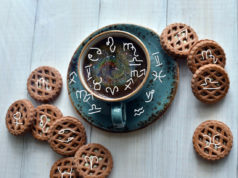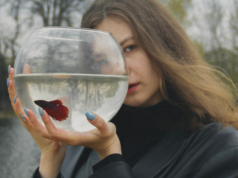Late Sunday evening, the independent coffeehouse Avoca Coffee, on the Near Southside, provided the casual (and great-smelling) backdrop for The Hall Ensemble’s first and only public performance this fall.
Cellist Karen Hall and her husband, bassoonist Kevin Hall (both currently with the Fort Worth Symphony Orchestra), put together a delightful program in which standard and lesser-known repertoire were blended seamlessly. The Halls were joined by fellow FWSO musicians and core ensemble members Jennifer Chang (violin) and Aleksandra Holowka (viola). Two special guests, Joe Cleveland (violin) and Hallie Yarbrough (violin), contributed as soloists.
Before the concert began, Karen addressed the crowd of about 60. “We want to return chamber music to its roots,” she said, referring to the gradual shift of small ensemble performances toward large concerts halls such as Lincoln Center over the last century. The Hall Ensemble’s choice of venue certainly created a sense of intimacy that Karen said was the hallmark of true chamber music experiences.
The ensemble began with the finale from J.S. Bach’s “Concerto for Two Violins in D minor.” From the first downbeat, the ensemble executed the buoyant, contrapuntal texture with precision and ease. Cleveland and Yarbrough, both amateur musicians in the sense that they do not perform for their livelihoods, delivered their alternating solos with control and just the right amount of panache.
The second selection that evening, “Bassango,” was a brilliant rendering of a relatively lackluster composition. Kevin introduced the modern work, describing the Canadian composer Mathieu Lussier as a “preeminent bassoon virtuoso.”
The title “Bassango” describes two prominent components of the work: bassoon and tango. Every minute of the performance revealed the composer’s obvious penchant for brilliant, lyrical, idiomatic writing for bassoon and his overly clichéd interpretation of tango, an artform that has evolved heavily since the fairly recent departure of the composer Astor Piazzolla. Relying on a habanera rhythm from the cello and syncopated droning from Chang and Holowka, Kevin performed admirably, even transcending the uninspired accompaniments with his heartfelt interpretation of the long, mellifluous melodies.
The first half ended with a selection from a little known composer, Carl Jacobi. Based off the impression left by his “Quartet,” Jacobi (who composed classical era works well into the romantic period) may well be worth revisiting. All three movements featured well-balanced parts for the quartet, with short, attractive themes stated by Kevin then handed down to Karen and Chang in turn. Here, The Hall Ensemble sought a light sound that was kept in the foreground by crisp and precise articulation throughout the work. While acknowledging the small performance space, the group displayed too much restraint at times — this would not be the case for the second half.
The acoustics of the room favored the bassoon and cello, and while the sound in the main lobby area was clear and unobstructed, audience members near the back of the area were given a more deluded experience due to the odd angles at which the open-rafter ceiling bounced the sound around.
The intermission gave time for musicians and audience members alike to prepare for the final two performances of the evening. One of them, Beethoven’s last string quartet, stands out in the chamber music oeuvre as a singularly brilliant work of technical perfection and artistic expression.
Karen, who regularly gives pre-concert speeches at FWSO concerts and the Van Cliburn Foundation’s Musical Awakenings program, introduced the work, giving brief motivic examples for the audience to follow and explaining the quartet’s importance as Beethoven’s last fully completed work. The group’s rendition of the piece, which is surprisingly short for a late composition by Beethoven, transcended the individual voices of the musicians, creating a unified sound that served as the medium through which the great composer spoke his last musical utterance. Unlike other famous works by Beethoven, the late quartet does not rely on catchy themes. Such devices would only serve only to distract the listener from the unfolding musical narrative where every moment is equally important.
The evening’s program ended with a rousing performance of “Por Una Cabeza” by Carlos Gardel and Alfredo Le Pera. Cleveland and Yarbrough joined the quartet onstage and again performed as duo-soloists. The lively arrangement, replete with impassioned, ornamented melodies and relentlessly driving dance rhythms, was the perfect finale for the evening.
The Hall Ensemble’s concert is part of a series at Avoca that will resume this spring and feature works by Brahms, Vivaldi, Reger, and more. With the first of these programs now behind them, the Halls and company have a successful model to build on and Fort Worth music lovers have a refreshingly new option for great chamber music.












